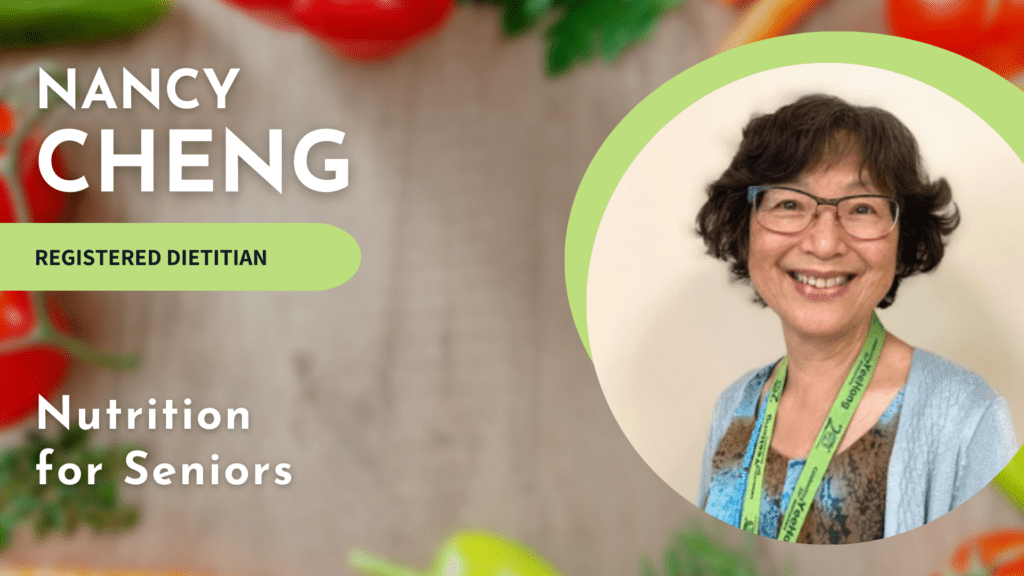
Nancy Cheng, Registered Dietitian, shares a few ways caregivers can better manage nutrition for senior family members who have loss of appetite.
It’s not uncommon for seniors to experience a decline in appetite. If older adults are eating less, the first step would be checking with a medical professional to rule out any health conditions that might be causing it.
Residents of Yee Hong Centres have the benefit of trained staff who monitor their body weights routinely and ensure adequate nutrition is offered. Yee Hong also provides a social environment, consistent meal and snack times, and a variety of menu options offered every day. Some people aging at home won’t have the same advantages. We’re pleased to share what we’ve learned about safe and healthy eating during our golden years.
To help caregivers provide better care for their loved ones living at home, we spoke to Registered Dietitian, Nancy Cheng, about how to improve nutrition for the elderly.
1. Get creative
Not eating enough can lead to insufficient nutrient levels or even serious health complications for older adults. Implementing a colourful “rainbow diet” can make eating more enjoyable to seniors while increasing their nutrient intake.
This method involves choosing at least three colors from the rainbow including: green, e.g. choi sum or broccoli; red, e.g. tomatoes or strawberries; orange, e.g. carrots or oranges. Incorporate more fruits and vegetables of other rainbow colors into your meal-planning for the day.
“Food that is colourful and visually-appealing can stimulate appetite and each color in the rainbow has its own set of unique phyto-nutrients,” Nancy says.
2. Try something new
Changing things up every now and then with healthy food alternatives is a great way to add some excitement to meal time. For example, you can try oat milk instead of dairy milk, or even brown rice and quinoa instead of white rice.
Ultimately, a well-balanced diet for seniors should include an adequate amount of protein, fibre, calcium, iron and other nutrients. “Protein is essential to maintaining muscle mass, which is especially important for seniors because the loss of muscle mass can lead to issues with mobility,” Nancy says.
Additionally, dairy and soy milk are excellent sources of calcium, which helps maintain bone density—essential for people with osteoporosis.
3. Be supportive and think about safety
Nancy also recommends supportive words and encouragement. A simple method is to talk about the key health benefits of eating a well-balanced diet during meal times.
If a loved one has trouble chewing or swallowing food, it may be necessary to develop a texture-modified diet. This involves incorporating more soft foods into meal-planning. Ask a dietitian or primary care provider how to make changes safely.
